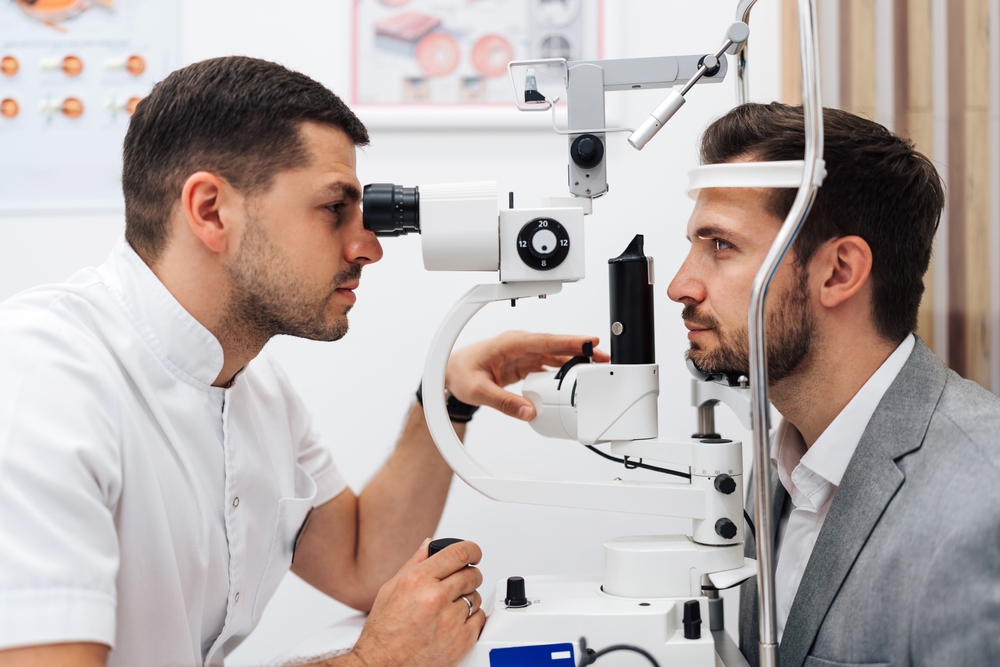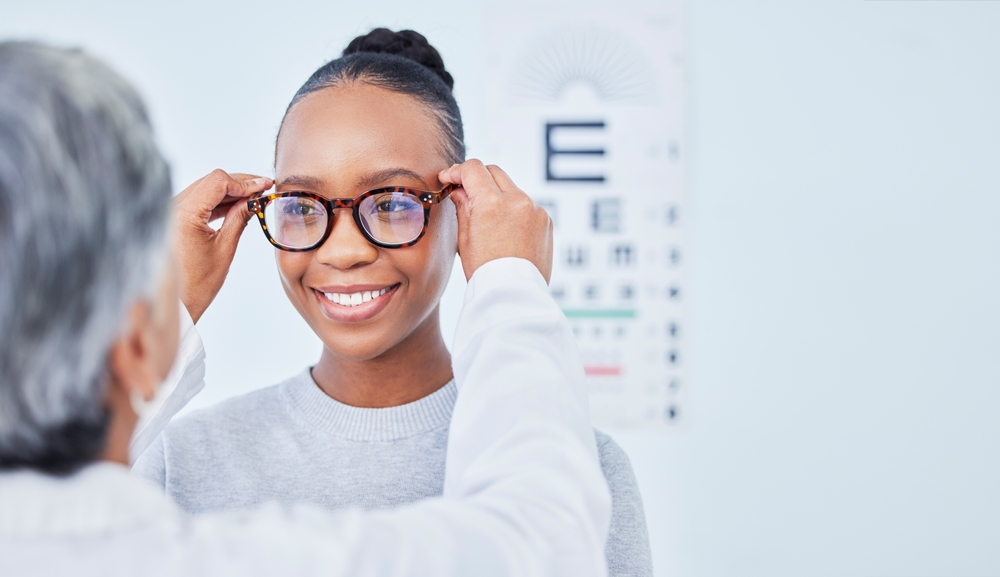What is the Difference Between an Optician, Optometrist, and Ophthalmologist?
September 10, 2024
Taking care of your eye health and vision is an important part of overall healthcare. It’s important to see qualified professionals who can help you protect yourself from eye conditions, check your vision, and get you the right glasses or contacts to suit your needs.
Depending on what you need for your eyes at any particular moment, you may need to see an optometrist, ophthalmologist, or optician. Despite how similar those job titles sound, they are different professions.
The people who do those jobs can all play an important role in taking care of your eyes. Keep reading to learn more about the differences between an optician, optometrist, and ophthalmologist.
What Is An Ophthalmologist?
 Ophthalmologists are medical doctors who have specialized training in treating eyes. Typically, an ophthalmologist has a four-year college degree, followed by attending medical school for four years.
Ophthalmologists are medical doctors who have specialized training in treating eyes. Typically, an ophthalmologist has a four-year college degree, followed by attending medical school for four years.
Once they have earned their MD, they go on to do at least four additional years of training in caring for eyes, including training in eye surgery. Ophthalmologists have to pass licensure exams, and many also achieve professional board certification.
They diagnose and treat eye diseases such as glaucoma or macular degeneration, as well as performing vision correction surgeries. They can also perform vision testing to prescribe corrective lenses.
When Should You See An Ophthalmologist?
You should see an ophthalmologist periodically for comprehensive eye exams. These exams involve more than a vision screening.
Your ophthalmologist will examine your eyes closely to identify possible eye disease. They will do a dilated pupil exam that allows them to see the inner structure of the eye and check for signs of glaucoma, macular degeneration, cataracts, or diabetic retinopathy.
Adults should have at least one comprehensive eye exam in their twenties. You may need them more frequently as you get older or if you have risk factors for certain eye diseases.
You will also need to see an ophthalmologist if you want laser vision correction or if you need cataract surgery. Only certified ophthalmologists can perform eye surgeries of any kind.
What Is An Optometrist?
An optometrist is a specialist in managing vision correction. An optometrist typically completes college and then goes on to do four years of optometry training to become a doctor of optometry (OD).
Optometrists perform vision tests, and they can prescribe corrective lenses. They cannot perform vision correction surgery. During an exam with an optometrist, they may identify eye disease or other medical conditions.
If this happens, they will refer you to an ophthalmologist for further treatment.
When Should You See An Optometrist?
An optometrist can check your vision and prescribe glasses and contact lenses. If you already wear corrective lenses, you can see an optometrist every year to make sure your prescription is still right for your vision.
You can also see an optometrist if you’re having new vision issues. They can help you with getting glasses or contacts for the first time.
They can help you learn how to put contacts in and how to care for them, which is an important part of the process. They will also examine your eyes and refer you to an ophthalmologist if they suspect there is a health issue with your eyes.
What Is An Optician?
 Opticians do not have medical training. They are skilled technicians trained to design, fit, and adjust eyeglass lenses and frames.
Opticians do not have medical training. They are skilled technicians trained to design, fit, and adjust eyeglass lenses and frames.
They may also assist with dispensing contact lenses and other devices to correct eyesight. They will not examine your eyes, nor will they do vision testing.
An optician will help you select frames and then do measurements of pupillary distance so that the lenses can be custom-made to correct your vision.
When Should You See An Optician?
You should visit an optician after you have seen an optometrist or ophthalmologist and gotten a prescription for glasses or contacts. The optician can help you select frames for glasses and order the lenses for them.
Once your glasses are ready, the optician can fit them to your face and make sure they are comfortable. If you damage your glasses or need them adjusted again, your optician can help you out with that as well.
An optician may also be able to help you with ordering contact lenses.
Schedule Your Eye Exams
Depending on your vision needs, you may have visits with more than one eye care provider. You may start out getting a vision screening with an optometrist, then see an optician for glasses.
Your optometrist may potentially refer you to an ophthalmologist if they have concerns about your eye health or if you want to pursue vision correction surgery.
All eye care professionals play important roles in caring for your eye and your vision. Seeing the right provider at the right time will ensure that you get the care you need.
Are you due for an eye exam or vision screening? Schedule an appointment at Carroll Vision Center in Westminster, MD, today!



